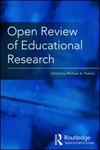Turtle Watch: Community engagement and action
Q1 Arts and Humanities
引用次数: 2
Abstract
Abstract Many threats face the freshwater turtle, Chelodina colliei, also known as the oblong turtle. A community education project, Turtle Watch, focused on this target species and enabled effective conservation action to be implemented. Turtle Watch was conducted in the Perth Metropolitan Area of Western Australia, as the oblong turtle inhabits the wetlands of Perth. Predation, habitat loss, road deaths and climate change are key threats to this species. Nest predation issues arose during stage 1 of Turtle Watch (2005–2008), so Turtle Watch 2 (2010–2012) aimed to identify predators and foster community partnerships, including citizen science, to promote awareness and conservation of turtles. Turtle Watch 2 focused on four eco education centres and involved collaboration between government and community groups concerned about turtles. Camera surveillance was undertaken to determine predators. Various strategies were also adopted to promote community education and participation, such as, public talks, fair stalls, media publicity, and the ‘Turtle Hotline’ and ClimateWatch website for recording turtle sightings. Project results included camera surveillance evidence of fox predation. In addition, numerous partnerships, ranging from research organizations, educational institutions, and input from community citizen scientists made valuable contributions to the project by working collaboratively on turtle conservation issues. Following completion of Turtle Watch 2 (2013), it was agreed by project stakeholders that the initiative would continue given considerable community momentum to support an ongoing Turtle Watch commitment. This strong community and school engagement continues to contribute to improved knowledge, skills and action in relation to oblong turtle conservation.海龟观察:社区参与和行动
淡水龟(Chelodina colliei)也被称为长尾龟,面临着许多威胁。一项名为“海龟观察”的社区教育项目将重点放在这一目标物种上,并使有效的保护行动得以实施。海龟观察是在西澳大利亚的珀斯大都会区进行的,因为长形海龟居住在珀斯的湿地。捕食、栖息地丧失、道路死亡和气候变化是该物种面临的主要威胁。巢捕食问题出现在海龟观察的第一阶段(2005-2008),因此海龟观察第二阶段(2010-2012)旨在识别捕食者并促进社区伙伴关系,包括公民科学,以提高对海龟的认识和保护。“海龟观察2”的重点是四个生态教育中心,并涉及政府和关注海龟的社区团体之间的合作。采用摄像机监视来确定捕食者。此外,我们亦采取多项策略,推动社区教育和参与,例如举办公开讲座、举办摊位、传媒宣传,以及设立“海龟热线”和“气候观察”网站,记录海龟目击情况。项目结果包括狐狸捕食的摄像机监控证据。此外,来自研究组织、教育机构和社区公民科学家的众多合作伙伴,通过在海龟保护问题上的合作,为该项目做出了宝贵的贡献。继《海龟观察2》(2013年)完成后,项目利益相关者一致同意,鉴于社区大力支持持续的《海龟观察》承诺,该计划将继续进行。这种强有力的社区和学校参与继续有助于提高与长角龟保护有关的知识、技能和行动。
本文章由计算机程序翻译,如有差异,请以英文原文为准。
求助全文
约1分钟内获得全文
求助全文
来源期刊

Open Review of Educational Research
EDUCATION & EDUCATIONAL RESEARCH-
CiteScore
2.60
自引率
0.00%
发文量
0
审稿时长
22 weeks
 求助内容:
求助内容: 应助结果提醒方式:
应助结果提醒方式:


